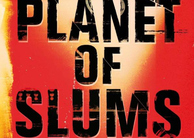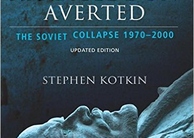Book Review: A Brief History of Neoliberalism by David Harvey (2005)
By
2016, Vol. 8 No. 02 | pg. 1/1
KEYWORDS:
Michael Thompson, reviewing A Brief History of Neoliberalism by David Harvey, calls it ‘the world according to David Harvey’ (2005). This is an accurate remark: although erring slightly on the side of conspiracy, the book is a breathtaking overview of the ‘neoliberal world’ through Harvey’s neo-Marxist and anti-capitalist lens. The book is aimed at the general reader and is a non-technical, concise introduction to many of the key features of neoliberal theory: the economic practices proposing that human wellbeing can be attained by reducing state intervention, promoting free markets and maximizing individual liberty (Harvey, 2007). Neoliberalism's inner workings, its historical turning points and key actors, and the states and institutions forming the ‘capitalistic world’ (a world which Harvey explicitly contests) are deconstructed throughout the text. A Brief History provides a rich historical examination of neoliberal policies since the 1970s, tracing as far back as the emerging dominance of US hegemonic values following the Cold War, the Volcker shock and Thatcher’s economic reform policies, up to the modern day practices of the ‘imperialist’ IMF and World Bank.The ideological and material legacies left behind by elitist institutions (such as the Mont Pelerin Society) or by politicians who led pro-neoliberal administrations, according to Harvey, means that neoliberal thinking remains the current hegemony at the expense of the poor and working class. Pinochet in Chile, Thatcher in Britain, Reagan in America and Deng in China were cardinal figures because of their success in creating ‘consent’ towards and expanding the neoliberal ethos, fostering a series of changes that transformed neoliberal theory into reality. In all nations that have moved to this direction, there was a sharp increase in social inequality and the redistribution of economic resources to the upper classes, which had been in decline under Keynesian embedded liberalism. Thereafter, the neoliberal practices implemented in the 1970s have persisted, and succeeding leaders such as Blair and Clinton, found them not only impossible to alter, but each, in fact, furthered their development. Harvey argues that neoliberalism is a form of political economy that strives to accomplish only one mission: to restore the class power of the global economic elite. The book is a typical representative of a recent surge of anti-neoliberal literature (e.g. Blomgren 1997; Chomsky 1999; Marsdal and Wold 2004; Rapley 2004; Hagen 2006). Whilst several of these works fail to define what exactly neoliberalism is, claiming that it “defies definition” (Saad-Filho, 2004), Harvey stands out by providing a powerful and resonant definition. Influenced by economists Duménil and Lévy, Harvey argues that neoliberalism is a form of political economy that strives to accomplish only one mission: to restore the class power of the global economic elite. Hence, neoliberalism in reality is far from the “utopian project to realize a theoretical design for the reorganization of international capitalism” (p.19) but a mask to hide the grim realities of the reconstitution of class power in the financially oriented economy. Harvey continues to state that when the principles and theories of neoliberalism conflicted with the interests of elite power, the latter took precedent. Examples include the bailouts of Wall Street companies or entire industries, supported by neoliberal governments like the Bush administration, who immediately override neoliberal values when elite power is threatened. This conception of a ‘revolution from above to restore class power’ (Thompson, 2005) forms the baseline which is repeatedly emphasized throughout the book. As a self-proclaimed Marxist, it is unsurprising that Harvey’s analysis of global capitalism is embellished with criticism (an ‘erroneous theory gone wild’, p.152). This is certainly not a balanced assessment of neoliberalism and, hence, will not likely to be found satisfying by neoliberal politicians and economists. Nevertheless, as Ritzer (2005) writes, ‘the one-sidedness of this appraisal gives it great power; further, it is difficult to argue with its major critiques of neoliberalism’. One is also convinced by the book’s advocacy of a system where ‘elitist’ freedoms of markets and profit are replaced by greater freedoms of social equality, democracy and justice in the economic, political and cultural sphere. For neoliberalism in general has indeed greatly uplifted the position of economic elites in Britain, the United States and elsewhere, but at the expense of the working class (‘accumulation by dispossession’) throughout the world. Understanding Harvey’s theoretical approach, even if merely constituting background information, is crucial when engaging with his work because accounts of the neoliberalism vary widely, depending on the interpreter’s academic and personal background (Babb, 2005). Evident from Harvey’s groundbreaking book Social Justice and the City (1973), his strength lies in the ability to extend Marxian political economy to his analysis- in this case to the doctrine of neoliberalism. Under neoliberalism, as Harvey writes, capital is gained by the exploitative concept of ‘accumulation by dispossession’ and has resulted in massive social inequality and environmental degradation. How then have so many ‘bought into’ this state of being? Perhaps the most important accomplishment of the book is in answering this question. In Chapter 1, Harvey distinguishes between rhetorical ‘individual freedom’ that neoliberalism seductively promotes and the stark reality- that liberalism is reserved for economic elites only; freedom for the polity are decreased. A Brief History slowly reveals the rhetoric of neoliberal discourse as fallacies. In concordance with Polanyi, Harvey fears that neoliberal regimes will threaten and erode democratic political institutions. In other words, ‘the good freedoms are lost and the bad ones take over’ (p.37). Already this is happening; ‘A strong preference,’ Harvey writes, ‘exists for government by executive order and by judicial decision rather than democratic and parliamentary decision-making.’ (p. 66). As critic Thompson suggests: more ‘theoretical insight – such as Harvey has proffered here – needs to constantly nourish the various opposition movements that currently exist’ (Thompson, 2005) – in this respect Harvey’s book is an outstanding addition to the existing literature on neoliberalism. One consequence of neoliberalism’s new emphasis on individual freedom is that social movements, activists and NGOs, which should have been oppositional to neoliberalism, ‘are vulnerable to incorporation into the neoliberal fold’ (Harvey, 2005). As Harvey suggests, such movements fill in the social cavities created by the withdrawal of social welfare and decline in forms of political representation. But does this necessarily mean they become ‘Trojan horses for global neoliberalisation’? (p.177). It is here where analysis becomes problematic. As Harvey himself so clearly distinguishes, there is a tension between the theory and actual process of neoliberalisation. Harvey focuses much of the book on explaining the latter rather than the former, when it is vital to view oppositional movements as inevitably part of political processes (Larner, 2006). Larner, in her review, was right to point out that we are forced to rethink Harvey’s claim that the neoliberal state is an ‘inherently unstable’ political form because it only reflects the interests of elite individuals. If neoliberalism is shaped by oppositional claims, then it is—as all state formations are—an uneven political compromise and not only an output of the hegemonic elite. Towards the end, and this is where Harvey’s work is perhaps the weakest, the book discusses reactive social movements opposing neoliberalism and discusses the fate of this rather antithetical economic mantra. Harvey asserts optimistically that neoliberalisation has already ‘spawned a swath of oppositional movements’ (p.199) in India, Brazil and Mexico seeking to disassociate from the overwhelming powers of neoliberal globalization. The rhetoric of neoliberal theory will, he hopes, be unmasked amidst movements spawned by massive economic inequality. Only from engaging with such instances of ‘anti-neoliberalism’ can valuable lessons be learned about the way forward. Harvey’s ruminations are compelling, but cultural and social realities cannot simply be attested to capitalistic market mechanisms. Not all social movements are economically determined or against neoliberal theory; many have deep and subtle cultural, environmental or political roots (Larner, 2006). Further, given the hopeful ending to the book, which alerts us to the pitfalls of neoconservatism and imagines other forms of democratic governance, the author gives little theoretical insight into what an alternative world should look like. Harvey mentions only a few examples but the presupposition of the effectiveness of social movements remains open. Neither the United States nor China has seen hints of mass protest against the realities of capitalism and inequality. Nor can one truly predict the outcomes of a social movement of the disaffected (Thompson, 2005). Harvey does not consider such issues, but they need to be considered since history does not always repeat itself and politics does not ‘spring mechanistically from economic conditions’ (Thompson, 2005). Like many works exploring a relatively unchartered ideology, this book is armed with strong criticism, but weak on positive alternatives to the system. In spite of this, Harvey’s book is deeply rewarding, illuminating and stimulating. His ability to elaborate and explore the most contemporary theory behind modern capitalistic accumulation – in particular the ideology and theory of liberalism, the real consequences of the neoliberal rule, its resultant global inequalities, growing social disparities and the case studies on China’s hybrid economic model – is worthy of admiration and his ideas should, as Thompson (2005) rightly praises, become a central part of the current body of knowledge on economic inequality, globalisation, and the critique of hegemonic development. A Brief History may indeed be brief, but it serves as a powerful call for revolt against neoliberalism and its many fallacies, false promises and problems. ReferencesBabb, S. (2006). Review/ A Brief History of Neoliberalism, Contemporary Sociology, 35 (5), 529-530. Blomgren, A. (1997). Nyliberal politisk filosofi. En kritisk analys av Milton. Friedman, Robert Nozick och F. A. Hayek, Nora: Bokförlaget Nya Doxa. Chomsky, N. (1999). Profit over People – Neoliberalism and Global Order. New York, Seven Stories Press. Hagen, R. (2006). Nyliberalismen og samfunnsvitenskapene – refleksjonsteorier for det moderne samfunnet, Oslo: Universitetsforlaget.Saad-Filho. Harvey, D. (2005). A Brief History of Neoliberalism. Oxford: Oxford University Press. Harvey, D. (2007). Neoliberalism as Creative Destruction, The Annals of the American Academy, 610, 22-44. Larner, W. (2006). Review/ A Brief History of Neoliberalism, Economic Geography, 82 (4), 449-451. Rapley, J. (2004). Globalization and Inequality: Neoliberalism’s Downward Spiral. Boulder, Colorado: Lynne Rienner. Ritzer, G. (2007). Reviewed work(s): A Brief History of Neoliberalism. American Journal of Sociology, 113 (3), 247. Thompson, M. (2005). Review/ A Brief History of Neoliberalism. Retrieved from http://rebels-library.org/files/d3Thompson-1.pdf Suggested Reading from Inquiries Journal
Inquiries Journal provides undergraduate and graduate students around the world a platform for the wide dissemination of academic work over a range of core disciplines. Representing the work of students from hundreds of institutions around the globe, Inquiries Journal's large database of academic articles is completely free. Learn more | Blog | Submit Latest in Book Reviews |


















